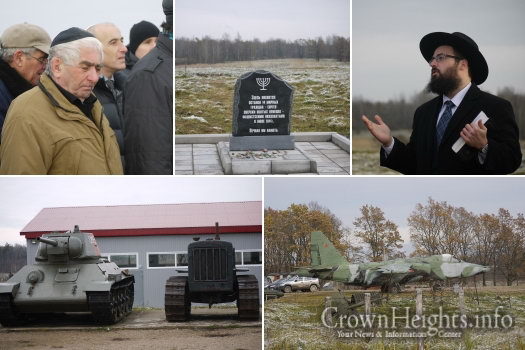
Grave of 14 Jewish WWII Victims Revealed in Russia
by Sveta Raskin – FJC.ru
A solemn tale of tragedy, memory and cooperation came to a conclusion last month, when a memorial stone was inaugurated at the grave of 14 Jewish WWII victims in Pskov region of north-west Russia. The Pskov, Veliky Novgorod and Petersburg Jewish communities worked together to complete it.
The story began over three years ago, in a historical reserve “Line of Stalin”, 20 kilometers east of Latvian border, which is part of the Pskov war-historical museum. The reserve and near-by area is a site of heavy fighting during World War II and a special search group Poisk works there to uncover bodily remains of Red Army troopers and burry them properly.
However, at that time what the group found were remains of civilian citizens. “How did we know they were civilians? The remains were of children, women and old men, some sculls were shattered by rifle-butt blows, we had to collect them piece by piece,” wrote on the museum’s blog one of the Poisk searchers Rachim Dzhunusov. Also, as opposed to Red army troops, where discoveries often include personal possessions that make identifying possible, the group of civilians had absolutely no identification marks. “They were stripped naked, there wasn’t a single buckle, a button, nothing,” Dzhunusov wrote.
What did give the group an identification lead was an eventually-found single eye-witness account of an elderly woman, a former resident of the near-by village, Kholmatka, who remembered that in July 1941 a group of refugees arrived from Latvia, fleeing the Nazis. Unfortunately, the group did not flee far and was captured near the village.
The people were then divided onto Jews and non-Jews and the Jews were taken in the direction of the of the remnants discovery and never seen again, she said. The details of the account checked out as analysis showed that the remains belonged to 14 people, among them two newborns, two teenagers, one old man and 9 women.
Searchers notified the FJC Jewish community of Pskov immediately. The community there is rather small, about 1,000 people. “I just became the head of the community around that time, and members would come to me and tell me about the case and ask me to do something about it,” says Lev Levin, president of Pskov Jewish community. Levin contacted FJC’s rabbi Yakov Sominsky, the chief rabbi of Veliky Novgorod – the closest neighboring community to Pskov.
Upon clarifying the details and the eyewitness account, Sominsky and Levin contacted the museum and settled a day for the burial ceremony. In July 2015 the remains of 14 Jews were buried on the reserve’s territory near the site they were found, in the presence of the rabbi and community members. Sominsky recited kaddish, the memorial prayer, and the attendees placed stones.
However, the story was not over yet, as the communities strived to commemorate the site with a memorial, and started collecting funds. “Everybody wanted to pitch in,” tells Levin about the memorial construction. “Once they heard what it was for, no matter the religion or nationality, everyone wanted to help, and that is how it should be.”
In Petersburg, also in North-West Russia, the general consul of Israel Michael Lotem heard about the project and also assisted in its completion. Finally, in November of this year members of the three Jewish communities came together in the Pskov area reserve for the memorial’s inauguration.
“Here lay the remains of 14 peaceful civilians – Jews – brutally killed by Nazi German aggressors in July 1941,” reads the inscription on the black marble. The local news television reported on the ceremony, saying that it was “touching and warm, never mind the stormy and cold weather.”
Speaking at the ceremony rabbi Sominsky said: “Memory is what helps us build the future of which we all dream: a future without wars, where people live together as a family, in light and kindness.” And in a phone interview last week, he added: “Our sages say that a person is alive while he is remembered. By commemorating the victims we returned to them at least a fraction of their rights, the right to be remembered. Also keeping these memories alive guards us from repeating history.”

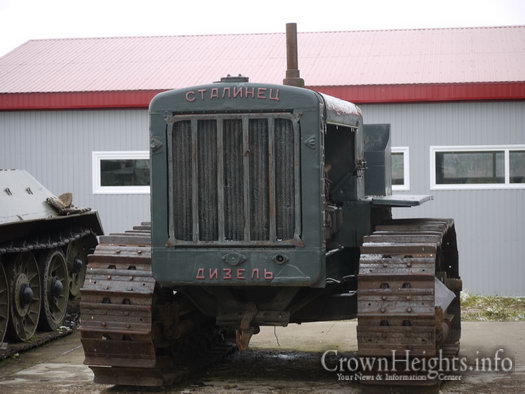
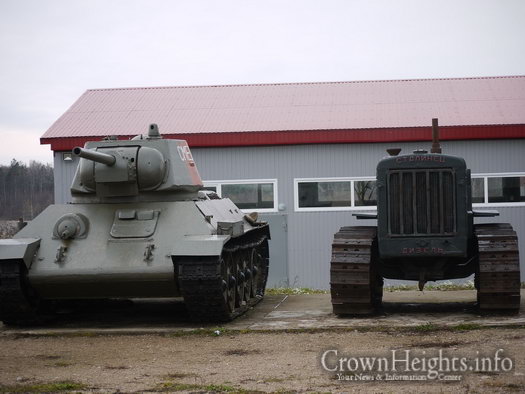
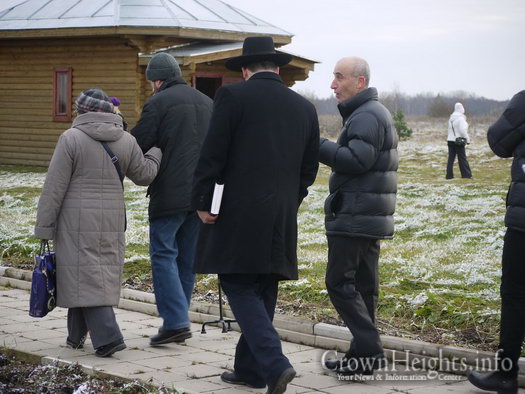
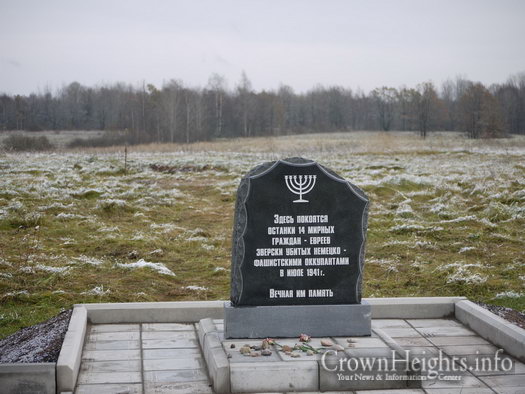

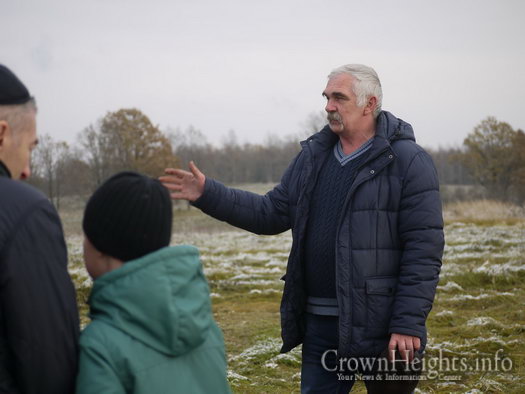
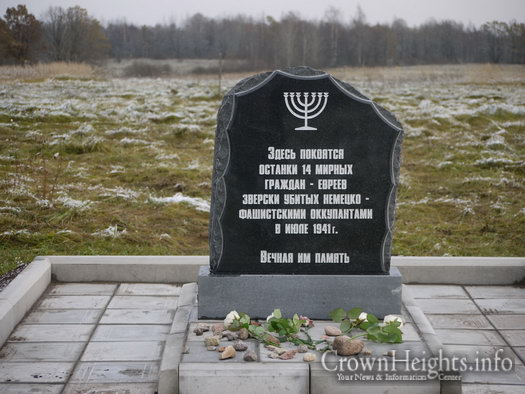
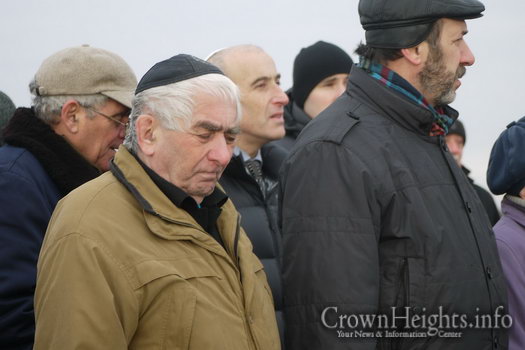
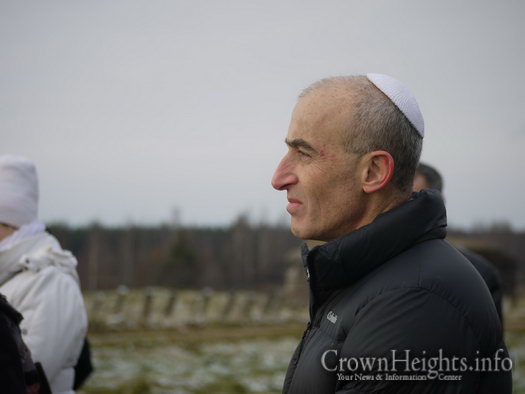
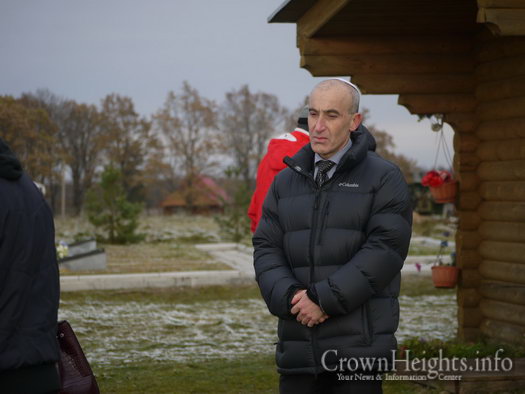
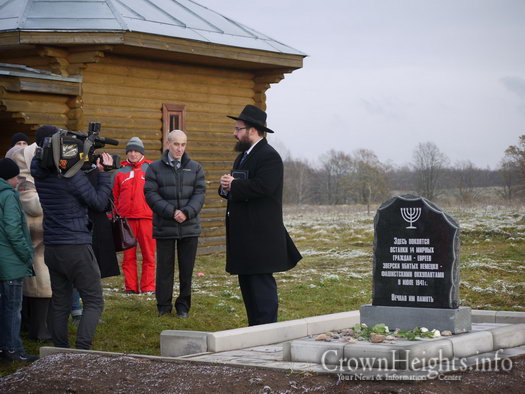
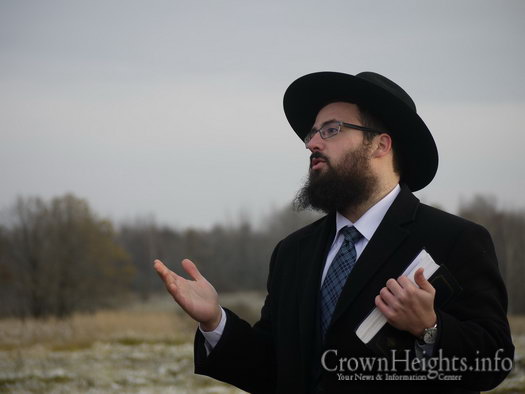
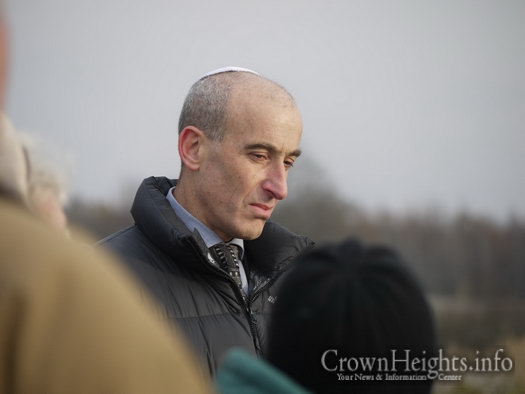
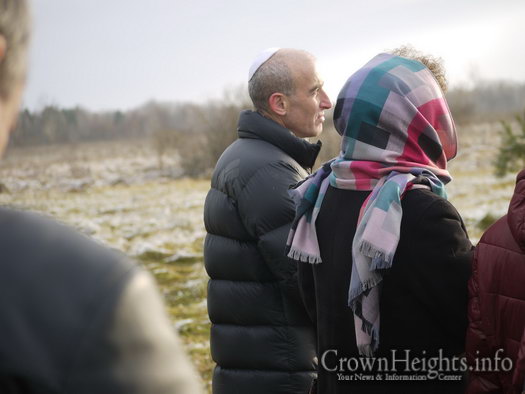
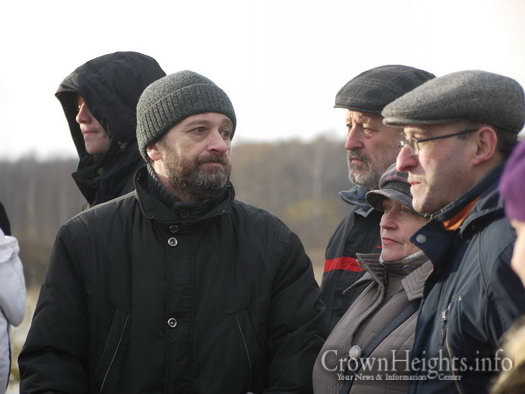
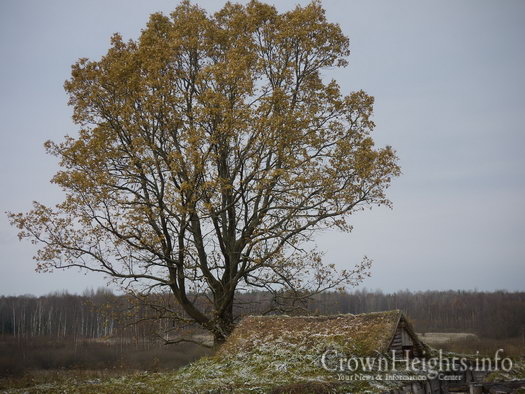

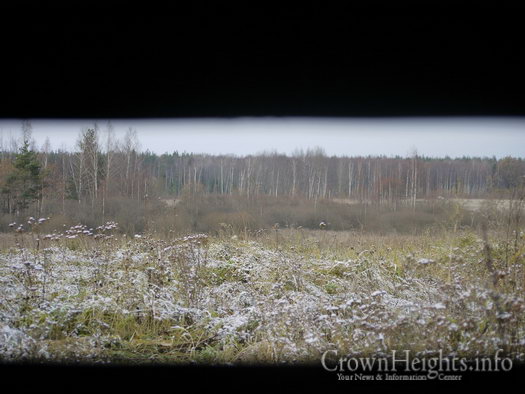
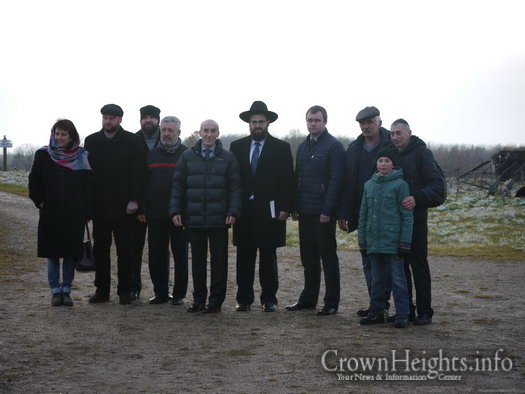














Hashem yikom domom
moshiach NOW